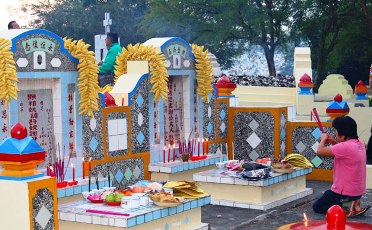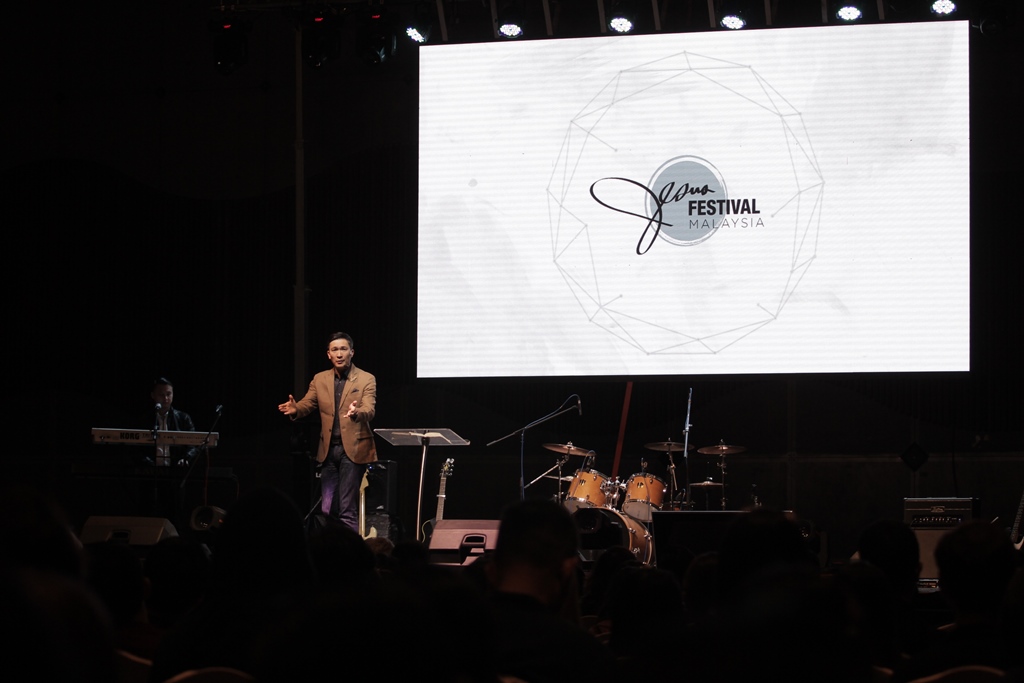
4 April 2013 by James Hoh CM –
Today is Cheng Meng or Qing Ming in Mandarin, the day when the Chinese go to the cemetery to “sao-mu” or sweep the graves of their ancestors. But it is also a day that makes many Chinese Christians uncomfortable.
Is it a religious event or a tradition? What should we do as we join our non-Christian family members who offer sacrifices, joss-sticks, candles and paper money and pray to the dead?
On one hand, we, as Christians, have to show that we honor and respect our ancestors and we don’t want to make others think that once we become Christians, we forget our roots.
On the other hand, we don’t want to be part of a ritual praying and worshipping the dead as it is not biblical.
Here is a translated and condensed article on Cheng Meng by Rev Ezra Yew from Taman Midah Lutheran Church Kuala Lumpur which may be helpful to many who are still struggling with the dilemma:
It says: “It is important for Chinese Christians to observe this day together with the rest of family members who may not be Christians. We are to pay homage to our ancestors by doing such acts as offering flowers to signify our respect and love for our ancestors. By being diligent in this we avoid creating misunderstanding among the non-Christians.
Some pastors discourage Christians from bowing at the grave because such an act is construed as submitting to demon spirits or worshipping idols.
However we can bow without kneeling to demonstrate respect just as we bow to respect our teachers. Even as we bow, we could pray to God to strengthen and bless our family members and ask Him for the salvation of our loved ones.
Nevertheless, a word of caution here is that we are not to worship our ancestors using joss sticks. The burning of joss sticks is construed as worshipping for it signifies so in another religion.
If some of our family members who are of a different faith yet respect us as Christians, then we are actually in a better position to share with them our feelings of love for our ancestors. While this honors God, it also helps to avoid arguments and dispel misunderstanding.
However if our parents are still unable to understand our position on this matter, it may be due to our attitude in our daily life.
In order to reverse the situation, we must start honoring our parents and our relatives. If possible, contribute financially and make genuine efforts to demonstrate that we care for them as often as we could, in the hope of gaining their trust.
Remember to pray for better relationships. One day not only will they respect us as Christians for not using the joss sticks to worship our ancestors, they may even be ready to listen to the Good News of Jesus Christ that we share. Prayer can be a powerful weapon.
Besides praying for our family members’ salvation, God commands us to honor our parents so that we may have long lives. We need to thank God for our family members and be obedient children to our parents.
Some suggestions when we join our non-Christian relatives and pay homage to our ancestors:
1. Give thanks to God for our loved ones (deceased);
2. Count our blessings;
3. End with praise and worship;
Cheng Meng/Qing Ming has its origin nearly two thousands ago when the Chinese went up to the cemetery to clean up the graves of their ancestors as a way of remembering and honoring them.
As usual, religious elements exerted their influences and commercialization comes into play, Cheng Meng has gone off tangent in many ways. We should have no qualms in participating the event as long as we know where to draw the line.
Dear Viewers in Christ, if you find this article edifying to you, please share with your friends or loved ones by using the social media plugs (Share, Email to this article). The Lord will surely bless you as you bless others. May the Lord’s peace and love be with you. Amen.
Reference for pictures:
http://szlovely.files.wordpress.com/2010/06/cheng_beng.jpg





Thanks James.
Very true with what you said, we can bow to show respect but not using the joss sticks.
Issues can be more sticky when I’m the eldest son of the family, and from a big family.
But we will keep to our faith in the Lord, and at the same time ,not show that we don’t care about ancestors after become Christians.
My wife used to say, just do it to show respect to the elderly relatives that are still with us that we love them, and not have arguments over this issue.
Thanks again.
God Bless.
TQ James,
I really appreciate your post and it really takes off an ultra-heavy load from my mind regarding the issue of Ching Ming.
Catholic church allows us to burn incense in front of our ancestor pictures as an act of respect . We pray to God, not our ancestor. The burning of incense is the symbol our prayer to God. We pray that God will give them mercy, so that they can rest in peace.
A lot of Chinese people don’t have their relatives tombs to visit anymore. Instead, they are going to the beach, river or columbarium to remember their ancestor. That’s where they scatter or keep their relatives ashes.
People can scatter flowers at the sea/ rivers to pay respect in memory of their loved ones.
Hi!James,
Jx to clarify, when u mentioned not using joss sticks,does it mean not holding joss sticks?
Secondly,when V arrive there..d candles n joss sticks has been lighted up earlier by other family members..is it ok for us to bow to d ancestors as respect? Tq!
Regards